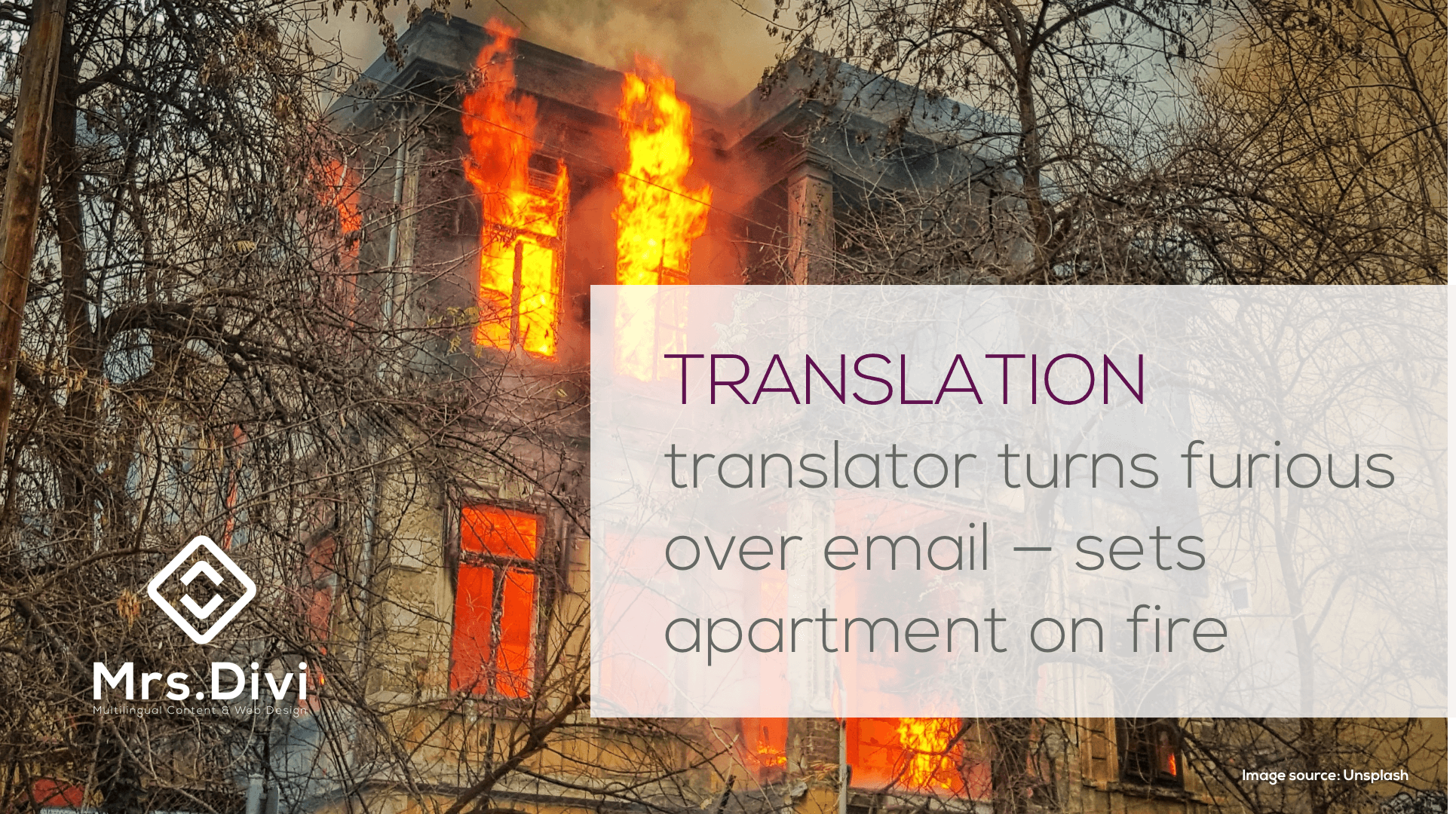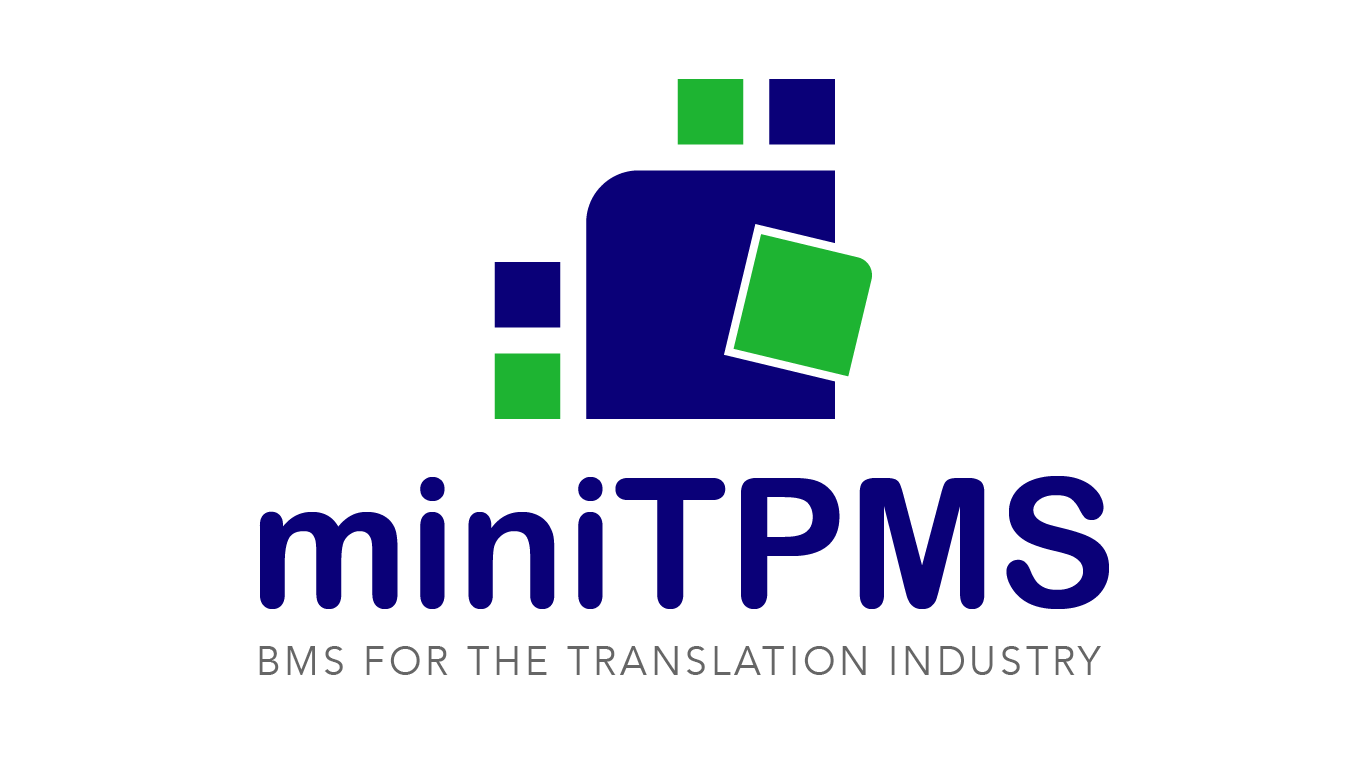
This is a work of fiction. Names, characters, businesses, places, events, locales, and incidents are either the products of the author’s imagination or used in a fictitious manner. Any resemblance to actual persons, living or dead, or actual events is purely coincidental.
The usual disclaimer on movies and TV shows, and it applies here, too.
“Coincidence was a concept he did not entirely trust.”
– Dan Brown, The Da Vinci Code
It was 10 pm on a Sunday evening. A project manager had just sent off an email to one of his translators, asking her to translate 1,500 words by Monday EOB. The email was worded in a formal manner, not overly polite.
After seeing the email pop up in her inbox, the translator got angry. Her first thought was: “Who the hell is this PM to assume I read my emails at 10 pm on a Sunday night? And then such a short, worthless job?? Why can’t these agencies just leave me alone on the weekends?”
Her second thought was: “This is so bad—to the universe itself—that every time this happens, a unicorn dies… and who doesn’t like unicorns?” The translator, full of fury and anger was fiddling with the lighter she had just used to light the candles around her bathtub (that she had now lost interest in) and put it down near the pile of papers that were her editing materials for an ongoing project. The fire caught fast. From papers to the drapes. To the wooden window frames. Soon enough, the whole apartment was on fire, and as sirens broke through the night, neighbors were evacuated, the block was closed down for several hours, and the damage was done.
Some translators can relate to her feelings. When they receive rather cold and informal emails, they feel unappreciated and that they don’t get the attention they deserve. They feel their PM’s tone of voice is often not quite right, sometimes even rude.
But doesn’t every coin have two sides?
One would think so. And if you are a project manager, you are most likely very well aware of the translator’s point of view.
For the translators out there, here’s a short breakdown of what it might look like when a project manager receives a job worth 1,500 words from their client and has to deliver it back in many different languages. Preferably fast.
Let’s assume a multinational client, one that doesn’t have a localization department. Of course, some clients do have one, but many don’t. They want a single point of contact to deal with one language, 15 languages, or, as a matter of fact, even 50 languages. Because they don’t have the time to deal with 40 vendors or 5,000 freelancers. They trust one of the “big guys”, a company that your PM works for. This PM might have gotten an email saying:
“Bob, here’s some copy that needs translating into our usual languages. Do your magic by Wednesday!”
The copy could be anything (and sometimes in a very strange “who-knows-what-kind-of-software” file format), and here could be a link to their CMS, or a Word document, or an FTP-hosted file, or an email attachment, and they want it translated into their 50 target languages within 3 days.
“Here’s 45,000 USD on our PO,” the client might add.
Now, the PM who received this message knows that the client has at least 4 tools in which their translations are done. They also have 3 different CMS systems that need to be maintained somehow. The client also needs DTP, print files, maybe a voiceover for the hearing impaired, and they want the PM to make sure the translations are geopolitically correct… Urban legend tells the story of the Chevrolet NoVa in Spain—which, if I remember correctly, means “doesn’t move” or “doesn’t go” or something like that—and as I said, it’s an urban legend, but still a good example.
This is your cue! Enter the PM superhero mode: Someone has to extract all that material from the CMS to be able to put it in the (appropriate) CAT tool, to carry out the analysis against previous (tons of previous) memories, to get the proper approvals from “7 layers of hell”, so from managers. Usually, it’s not really 7 approvals, but often it’s more than one.
Someone has to find carefully selected, proper translators (or a single language vendor company), proofreaders (99% of translators need good editors), a DTP guy, and everything needs scheduling.
The first translator confirms but then gets sick, or sees the material and changes their mind, or their dog has a litter, or their kid(s) had a bad day in school, or the latest Margaret Atwood novel was more interesting than work so they simply forgot… or their parrot has the flu.
You, as the PM are pretty much screwed now and everything will be late, because you cannot deliver 49 languages and be late with one, it has to be 50. Now 50 languages are late, and the end client’s multi-million USD launch, which HAS TO be on Saturday at 1 am for ALL languages is in jeopardy because of a parrot with the flu.
And then, by sheer miracle and digging deep in your contacts, you find a translator who works in this domain and is the best, but she doesn’t know how to use MemoQ, or Trados, or Across, Passolo, Lingotek, SmartCat, WordBee, WordFast… She politely refuses. She only works in MemSource (which btw. is an awesome tool, no problem with that, but you would have preferred a different CAT tool this time).
You’re pulling your hair out, decide to try and export the data from “god-knows-what-program” into a useable XLIFF file so that it can be translated in MemSource, which is what your translator works with, but then some of it doesn’t add up due to compatibility issues, or version issues, or both.
So you decide to pull out those sentences from the CAT tool, and get back to the translator to translate 3 more sentences directly in an email where you copy and pasted them and you pray that the email is UTF-8 encoded so that the special characters come through, and you hope you’ll be able to figure out where to put back those translations, but you realize your translator now has a minimum fee for every new email they read, which is 30 EUR, which is also out of your budget, so you need approval from your Senior PM, who needs approval from Management, who needs approval from the client PM who needs approval from Middle Management… and that was just ONE language. You’re responsible for 49 more. If you are lucky, only half of those are “yours” and the other half is in the hands of your incompetent “but the nicest person in the world” PM colleague.
Now that you get the translation back, you need to have someone edit and proofread it. Then you need to organize your team to create that brochure, someone else to take a look at this brochure named “Best_brochure_HU-HU” that is actually in Hungarian and not in Bulgarian. And yes, that is a stupid example, but tell me, do you really know which of the LV and LT language codes is Lithuanian and which one is Latvian without looking it up. I most certainly don’t. Let’s not even start about the difference between Slovak and Slovenian and those strange clients who sometimes abbreviate both incorrectly with SL.
You managed the impossible. Phew!
And then you go back to your client, but they say that in the meantime the Marketing team has changed 3 sentences out of 1,000 and they now need it all corrected, here’s another 40,000 USD but the deadline is not Saturday 1 am, it’s Sunday at 12 (noon) and you are lucky they don’t sue you because you leaked one sentence of theirs, which is now all over the internet because one of your translators used a public Facebook group to ask his friends what the meaning of XYZ is…
You go back and start analyzing your files again, looking for resources again, dealing with “minimum charges” again, with approvals again, with word counts again, and with the dreadful flu-ridden parrot. Again. And again.
THAT is what, among other things, LSP do. At least on the PM side. There is, of course, more. Some of it is nicer (like dinners with clients involving steaks and beer), some of it is worse (like having a dispute, disagreement, or having to prove your point of existence vs. machine translation).
But regardless if it is 1,000 words or 100,000 words, this is what PMs face, day after day, and our example here is a very simplified one.
Bottom line: blame “Big Software, Ltd.” or “Big Tech Inc.” who don’t want to deal with 600,000 freelancers, but rather with only three big LSP (not really sure how much vendors each of them have, but all of these huge companies think they might have TOO much, even if it is only three).
And hey, we didn’t even talk about style guides, terminology, standard LQA feedbacks to your translators, and we’ve only vaguely mentioned that those translations are done in Word, or Excel or Passolo or Across or Trados and they have to be put back into your customer’s CMS and the amount of points where something can go wrong is close to infinity. Add in different time zones and your head might start spinning…
Not *every* process is like this. Actually, this was only *one* of many scenarios. It might sound a little complex, but it’s nothing out of the ordinary in my world. Nothing we as LSP don’t deal with each and every day. The possible scenarios are countless.
So, if you are a freelance translator and your PM sends you cordial emails and nicely prepped CAT packages or even simple Word files you should be super happy and always remember: there is a dark side to that story. The one that your PM usually shields you from.
So now tell me again how you hate translation companies, those ruthless money-grabbing bastards who do nothing but send files back and forth and yet make three times more money than you do.

Guest post by Nenad Andricsek
Managing Director at MiniTPMS
Nenad has been in the translation and localization industry from 1998, first working for a corporate localization department, later moving on to running his own LSP. Currently, he is the Sheriff (!) behind miniTPMS, a Company Management System for the Translation Industry helping project managers and their managers stay sane, organize work in a better way, know their numbers, deadlines, financial situation, and lose the frustration that might lead to setting an apartment on fire.
For more details check miniTPMS.com.



So funny and SO true! Greetings from Ceske preklady, we all laughed hard… actually rather hysterically :)